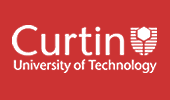
308953 v.1 Graduate Diploma in Health Economics (Aboriginal Health)GradDipHlthEcon(AbHth)(Curtin) This course is not available to International Onshore Students on Student Visas IntroductionFor further information contact the Division of Health Sciences. Designed for those seeking an understanding of health economics as it is and can be applied to Aboriginal and Torres Strait Islander, hereafter Aboriginal health economics. This course provides a detailed analysis of how economics can contribute to priority setting and equity issues in Aboriginal health. Examines a number of priority setting approaches and considers howto measure health and especially Aboriginal health. It also takes a comprehensive and more detailed look at health economics than was possible on the Graduate Certificate course. The future of Aboriginal health economics is also outlined. Course Entry Requirements/PrerequisitesGraduate Certificate of Health Economics (Aboriginal health). Recognition of Prior LearningApplications for recognition of prior learning are assessed on an individual basis. Duration and AvailabilityThe course is one semester full-time or equivalent part-time study. Available on line. Students can progress at different paces. Intermediate AwardsIn exceptional circumstances a student who has successfuly completed all the requirements for the Graduate Certificate Health Economics (Aboriginal Health) may apply for graduation with that award subject to approval by the Head of Department. For further definition refer to the Statement and Awards section under the General Information section in the Curtin Courses Handbook. Course OrganisationRepresents a more advanced level course than the Graduate Certificate of Health Economics (Aboriginal health). It covers both health economics and Aboriginal health economics. This course covers economic issues relevant to the current state of Aboriginalhealth. Concentrating on the values of Aboriginal culture, it looks at issues of priority setting, equity, funding arrangements and recent policies in Aboriginal health. Communitarianism as a value base in Aboriginal health economics is compared with themore individualistic base of neo classical economics and the role of competition in health care. The future role of Aboriginal health economics is set out. Career OpportunitiesGraduates generally find employment with health service organisations both mainstream and Aboriginal, State and Commonwealth health departments, universities and research institutes. Additional Course ExpensesStudents may be expected to purchase a number of textbooks, readers and other vital study materials.
AvailabilityAvailability Information has not been provided by the respective School or Area. Prospective/current students should contact the School or Area listed above for further information. Click here for a printable version of this page |
 |
|||||||||||||||||||||||||||||||||||||||||||||||||||||||||||||||||||||||||||||||||||||